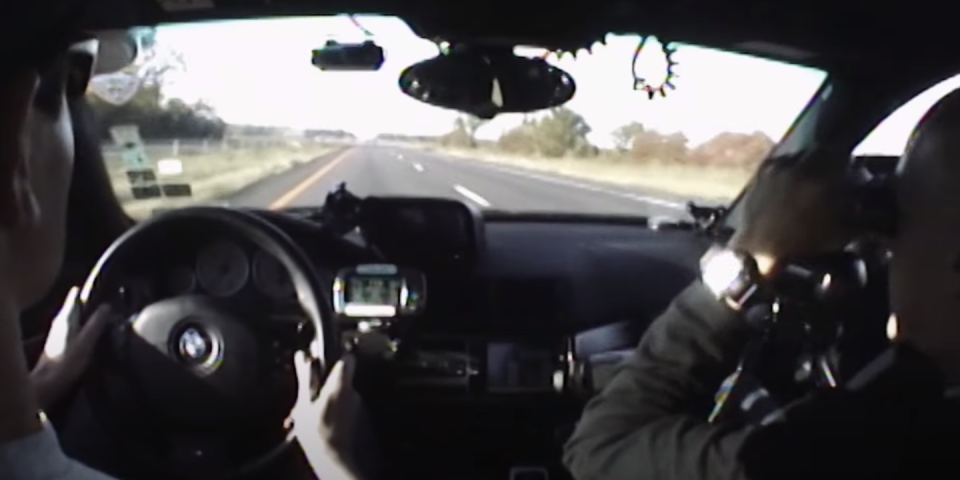No, Cannonball Records Are Not Dumb

Another day, another claim that someone has knocked time off of the trans-continental Cannonball record. When this happens, we receive a note or two about how irresponsible it is to glorify such reckless, dangerous, and illegal behavior. To that we say, we hear you. But the Cannonball is more vital to automotive enthusiasm than any form of motorsport. It’s real cars, owned by real people, on real roads, pressed against their limits. The risks are massive and the rewards nonexistent. It speaks to a level of purity that was once at the heart of all vehicular competition, and by proxy, all that Road & Track stands for.
I’m not impartial. Years ago, I joined outlaw king Alex Roy in his Morgan 3 Wheeler, setting a west-to-east record that stands to this day. And later, former editor-at-large Sam Smith and I helmed a Ural sidecar rig from Seattle to Los Angeles, setting another pointless non-stop record. Both were harrowing and traumatic. Explicitly dumb. But they gave me a better appreciation for why anyone would want to press their life against the clock and go like hell from one point on the map to the next.
I know all of the arguments, all of the precious hand-wringing around the speeds and the distance, but the truth is, no one has ever died in pursuit of a Cannonball record. Not a driver. Not a bystander. Those who take up the task pride themselves on safety, generally committing to months of preparation and planning. They calculate traffic flow rates and times, routes and weather, all aimed at reducing their chances of having to slow or stop. More often than not, that means avoiding as many people as possible. More competitors have died racing go-karts. More people wounded at soap-box derbies.
And, it would be hypocritical of us to celebrate the vast expansion of vehicular capability that we’ve seen over the past 10 years while turning up our noses at those who seek to use the breadth of those machines. Everything from tire technology to engine efficiency and aerodynamics have been aimed squarely at building safer, faster cars. Year after year, automakers turn out a fresh batch of models with specifications that embarrass the supercars of my youth. And for what? Lounging at a valet stand? Prancing around some track day? No. That’s the equivalent of our age’s baleful wealth hoarders, happy to see some number on a screen without ever understanding its weight. These are street cars, and they’re all built to wind out their speedometers on some forgotten stretch of interstate.
Performance cars have always had an anti-social streak. Like motorcycles, poems, or lingerie, they’re frivolous. They exist as expressions of our most playful selves, the parts of us that are so often banished to some back corner of our brains, pushed aside for some more pressing duty. No one needs a 911 when an Accord would do, but the world’s a better place with Porsche in it. And the Cannonball basks in that human expression. It files the driver down to a simple, pass/fail question. The playground litmus. Did you make it or not? We’re lead to believe that modern motorsport does the same, but we also know better. In a world where a karting season can cost more than $100,000, modern racing has less to do with who you are than the depth of your pockets.
To those who say a Cannonball record proves nothing, that they’re easy narcissism, I encourage you to try and do anything for 26 hours straight. Driving a car at high speed for that kind of time is real work, the kind of effort that tells you more about yourself than all the hours in an office ever could.
The Cannonball is profoundly American, and the kind of thing that’s kept our lights on for more than 70 years. If anyone has any thoughts, now's the time.
You Might Also Like

 Yahoo Autos
Yahoo Autos 